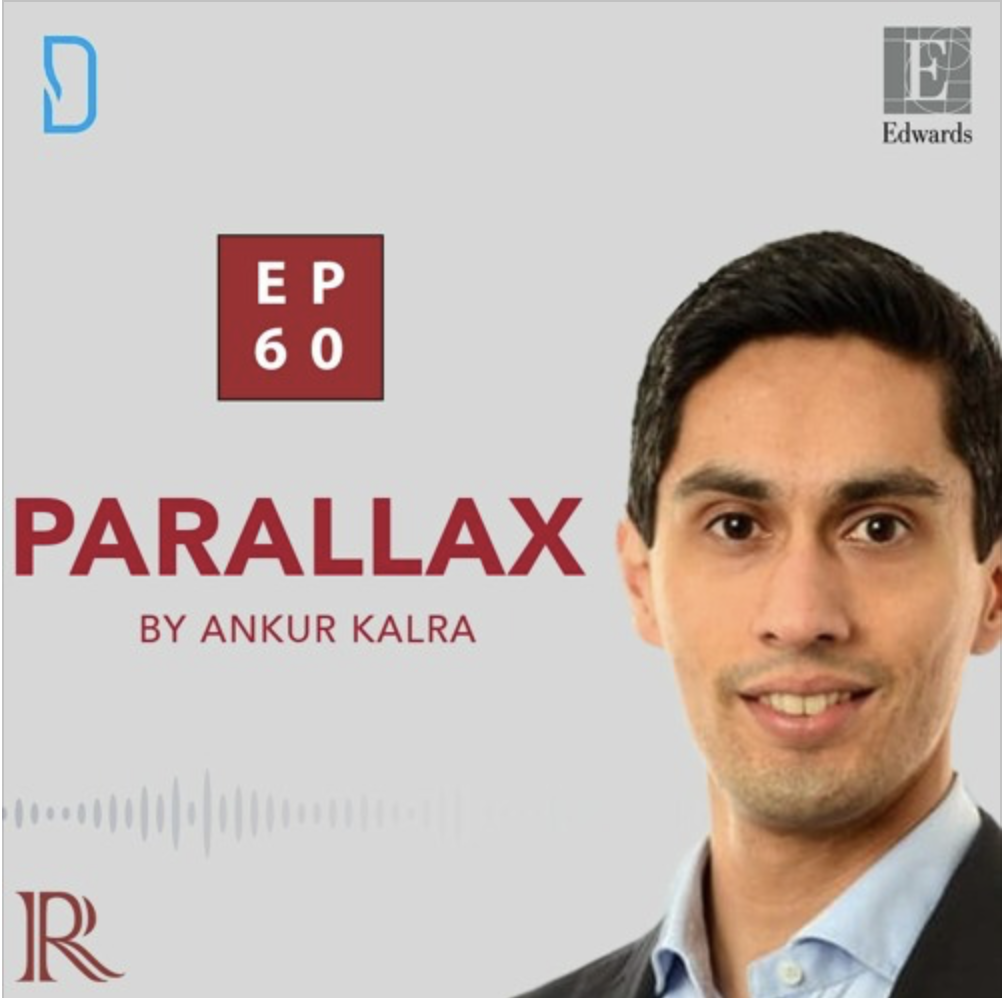
In the last Parallax episode of the year,Dr Ankur Kalra welcomed back Dr Sukh Nijjer, Interventional Cardiologist from Imperial College London, to review the most impactful events and advances in cardiology from 2021.
This year we had a number of studies that helped clarify our understanding of the world of antiplatelets: First, Ankur and Sukh discuss the take-home messages from HOST-EXAM, a Korean study presented at ACC 2021. They discuss their clinical experiences within the UK and US setting. Next, Sukh talks about the STOPDAPT-2 ACS study, presented at ESC 2021. Sukh interprets the findings in the light of TWILIGHTand summarises his thoughts on the therapy.
2021 was not a great year for physiology: Sukh shares his take on FLOWER-MI, presented at ACC 2021. He offers a deep dive into the data and highlights both the importance of the findings and the limitations of the study.
Next, they discuss RIPCORD 2 from ESC 2021 and finally, Sukh highlights the findings from the FAME 3 trial.
What is the importance of genotype testing in the world of antiplatelets? What are the considerations for clinicians? Should we stop using FFR? How can we incorporate novel findings to patient care? What are the practical considerations that we should take into account when looking at the physiology trials of 2021?
Stay tuned for Part 2 - heart failure and surgical trials coming in 2022.
Questions and comments can be sent to “podcast@radciffe-group.com” and may be answered by Ankur in the next episode. Guest @SukhNijjer, hosted by @AnkurKalraMD. Produced by @RadcliffeCARDIO.

Brought to you by Edwards: www.edwardstavr.com
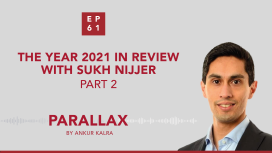
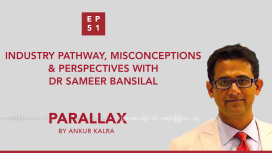
Dr. Bansilal was an Assistant Professor of Medicine at the Icahn School of Medicine at Mount Sinai when he decided to seek an alternative pathway to make an impact on patients’ lives.
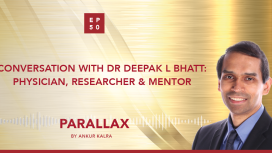
In the 50th episode of Parallax, Dr. Ankur Kalra’s guest is Dr. Deepak L. Bhatt leading physician, researcher, lecturer, and educator who has authored or co-authored over 1650 publications and was recipient of the ACC’s Distinguished Mentor Award in 2018 and AHA’s Distinguished Scientist Award in 2019.
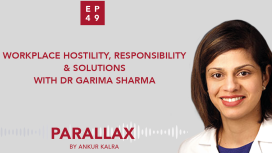
The American College of Cardiology surveyed cardiologists across the globe to have a more detailed understanding on the impact of hostility, discrimination, and harassment in the workplace. Of almost 6000 cardiologists who took part in the survey 44% reported hostile work environment.
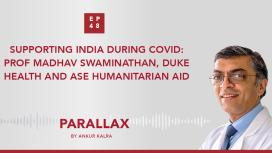
In this week's latest podcast episode, host, Ankur Kalra, MD, meets guest Prof Madhav Swaminathan (Duke University Health System, NC, US) to discuss how he has orchestrated a major humanitarian effort, in association with Duke University Health and The American Society of Echocardiography, to supply ventilation equipment and PPE to hospitals and NGOs during the current COVID-19 crisis in New Delhi, India.
Hear them discuss the challenges and learnings associated with the supply chain, inventory, logistics and cost to deliver this humanitarian effort; which most recently resulted in $140,000 of life-changing equipment being delivered to four key hospitals in New Delhi. A most inspirational episode.
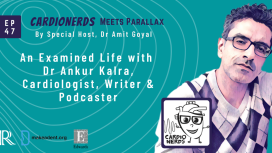
In this candid and spiritual conversation Amit and Ankur take a journey through former episodes of Parallax and Ankur’s writings to explore what it takes to strive for a deeper knowledge of ourselves; or, as Ankur puts it, dharma, the inherent order of reality.

Parallax’s guest this week is Dr Eric David Adler, Medical director of heart transplant and mechanical circulatory support at UC San Diego Health.

How did Dr Gragossian receive her diagnosis? How does she feel about her new reality? What drives her? What is her message to our listeners?

Just after 9/11, Heval, the 18-year-old Syrian Kurdish refugee found a job as a dishwasher. At this point, he was the sole provider of his family. The pressure that comes from being poor did not leave him for many years. Today, he is firm believer in giving back to underserved communities by spreading awareness within the medical community. As he says, well-meaning people of privilege are sometimes afraid to act. What we need is more people to bridge the gap and find ways to help each other.

What drives Dr Nishtha Sodhi? What were the formative moments of Dr Sodhi’s career? What are the new frontiers of cardiology?







